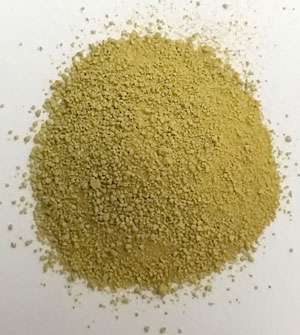Masking the bitter taste of antioxidant quercetin could enable its use in food products

Encapsulating the antioxidant quercetin in carnauba wax could mask its bitterness and enable its use in a wide range of food products, according to new research from Singapore.
Quercetin is a type of plant pigment called a flavonoid, and is one of the most abundant antioxidants in our diet. Laboratory research suggests it could have a range of beneficial effects, including anti-cancer, anti-obesity, anti-inflammatory and antimicrobial properties, in addition to being a potent antioxidant.
However, the opportunities to incorporate quercetin into fortified food products have been limited by its bitter taste. Encasing quercetin particles in a bland or even pleasant-tasting coating could offer one way to mask the taste.
"We see masking taste as a challenge for us to ensure that this doesn't get released at the wrong time, wrong place, wrong amount, and microencapsulation comes naturally to us as a solution to the problem," says Wai Kiong Ng from the Division of Crystallisation & Formulation Science at the A*STAR Institute of Chemical and Engineering Sciences.
The group identified three substances that could work as the outer coating: carnauba wax from the Brazilian palm tree, shellac—a natural resin secreted by a species of insect called the lac bug, and zein, a water-insoluble protein derived from corn gluten. These products are already widely used in the food and pharmaceutical industry, but the team needed to find out which option would remain intact in the mouth, masking the taste of quercetin, but dissolve inside the gastrointestinal tract.
The microencapsulation process involved mixing quercetin powder with powdered carnauba wax, shellac or zein, then feeding the powders into a heated device called a hot-melt extruder.
The temperature of the hot-melt extruder had to be controlled to melt the products sufficiently to coat the quercetin powder, without altering the chemistry of the quercetin. The resulting mix was then cooled and milled.
The team then tested how the coated materials behaved in solutions designed to mimic conditions throughout the gastrointestinal tract. They found the carnauba wax-microencapsulated quercetin powder stayed intact in the mouth but still dissolved well in the acid environment of the stomach.
Testing with an electronic taste sensor showed that the carnauba wax-coated product possessed an almost neutral taste, which was verified by human tasting of quercetin-fortified bread by Zhou Weibiao's group at the Division of Food Science & Technology, National University of Singapore. This paves the way for the microencapsulated quercetin to be used in products such as bread and powdered beverages.
More information: Chia Miang Khor et al. Hot-melt extrusion microencapsulation of quercetin for taste-masking, Journal of Microencapsulation (2017). DOI: 10.1080/02652048.2017.1280095















